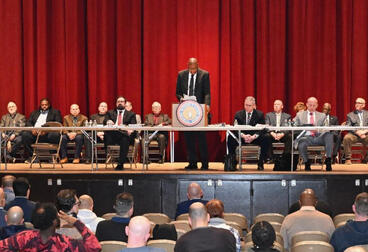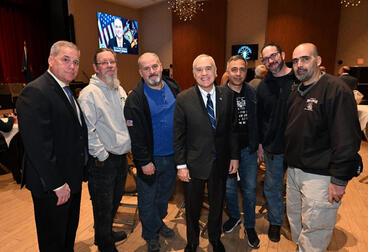This editorial first appeared in the NY Daily News.
By virtually all measures, New York City’s system for providing broadband internet service is an abysmal failure. Today it is estimated that 29% of households in the greatest city in the world have no broadband service at all, according to a recent report from Controller Scott Stringer. That means nearly one million homes in New York City lack high-speed internet, including half the households in Chinatown and the Lower East Side of Manhattan.
For those who do have broadband internet access, the dominance of Charter Spectrum has transformed the digital divide into a deepening chasm. Indeed, thousands of Charter Spectrum customers are stuck paying high prices for a slow network, while unwittingly enriching a corporation that has engaged in anti-worker practices that have left their striking employees out in the cold for over two years.
It’s time to shake up the system. Charter Spectrum’s franchise agreement that allows the company to operate in New York City is set to expire next year. And fortunately, there is an innovative alternative that could be a game changer for union members, businesses and consumers alike — Internet for All, a public option for broadband service.
Here’s how it would work. The state and city provide funding to cover the cost of constructing a high-speed broadband network that would be built and operated by a public agency. Consumers would then be charged a reasonable fee to obtain access to the network. Like a public option for health-care consumers, this system is designed to promote competition. As an alternative in a menu of choices available in the marketplace, Internet for All would provide an incentive for existing telecom giants to reduce skyrocketing bills and improve subpar service.
This is not a radical proposal. Other cities have delivered a public option for broadband service with impressive results. Chattanooga became the first municipality to create a citywide fiber optic network operated by a public entity in 2010. Today, the number of customers it serves has doubled and the system is providing the world’s first 10-gigabit per second speeds for all customers in its service area.
In other words, Chattanooga’s public broadband customers browse the internet at a speed that’s 166 times faster than the standard download service offered by Charter Spectrum in New York City.
Not only has Chattanooga’s investment in Internet for All attracted businesses from 3D printing companies to Volkswagen, it is beloved among consumers, according to surveys measuring value, speed and reliability. Support for this concept is growing and it is estimated that more than 450 U.S. communities now offer some variation of a public broadband option.
Why not give the private sector another chance to serve New Yorkers who lack internet access? We have, and the results were disastrous. Last summer, a state oversight agency voted to revoke Charter Spectrum’s license after the company failed to expand its network to 145,000 customers in areas without high-speed internet and misled the government about the status of its expansion. For the few upstate customers who did receive service, their network speeds were ranked among the slowest in the country.
Giant telecoms are not going to improve service on their own.
For years, they have wielded monopolistic market power to force substandard services onto customers who have nowhere else to go, while pricing others out entirely. Only a broken system would allow 44% of New Yorkers in poverty, 42% of seniors and 41% of people without a high school degree to be left disconnected. And only public competition can fix it.
Internet for All will require hard work, creativity and an investment in infrastructure that previous administrations have not prioritized. But it can be done. Considering the fact that our members have been on strike for over two years, the construction of a public broadband system would have a ready-made, skilled workforce on day one. For lower prices, better service and good jobs, a public option for broadband is a win-win-win for all New Yorkers.
Erikson is business manager of IBEW Local 3, some of whose workers are on strike against Charter Spectrum.

